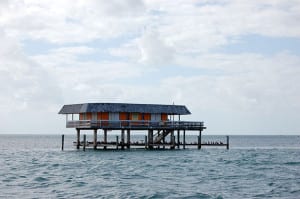 Most Florida Courts have held that in order to claim the Homestead Exemption as a protection against Creditors, the homeowner must reside in the property. In 1882 in Drucker v Rothstein, a Florida Court held that a piece of land that was never occupied by the Claimant, as a home or dwelling, and not capable of occupancy, does not qualify as a Homestead under the Constitution of the State of Florida.
Most Florida Courts have held that in order to claim the Homestead Exemption as a protection against Creditors, the homeowner must reside in the property. In 1882 in Drucker v Rothstein, a Florida Court held that a piece of land that was never occupied by the Claimant, as a home or dwelling, and not capable of occupancy, does not qualify as a Homestead under the Constitution of the State of Florida.
Furthermore, in the case of In Re. Estate of Ritter, another Florida Court case held that a lot that never had any structures or improvements which served the residence, which was located on an adjoining lot, and did not have a jointly fenced in yard, but served as an excess side yard to the residence, was not entitled to the benefit of the Homestead Exemption. However, the lot which contained the residence or dwelling, presumably would qualify for the Homestead Exemption.

